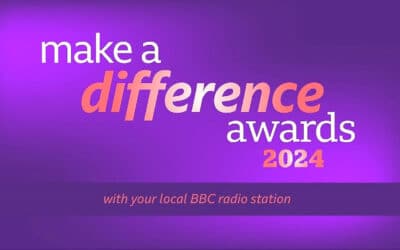The commercial radio sector has reacted angrily to BBC plans for four new DAB+ ‘extensions’ to its existing radio output.
Under the proposals, four new strands to Radio 1, Radio 2 and Radio 3 would launch on DAB+ “giving people more choice and value from the licence fee and building on the BBC’s wide-ranging support for British music” as well as delving “deeper into specific genres and periods of music with context, curation and storytelling done in a way only the BBC can do.”
The new extensions would see a main Radio 1 extension offering deep dives into specific artists and genres, up and coming artists and existing, relevant on-demand content from BBC Sounds. A second Radio 1 Dance thread would be an extension of the existing Radio 1 Dance stream on BBC Sounds and feature shows such as Radio 1’s Essential Mix and Radio 1 Residency.
Over at Radio 2, the DAB+ extension would offer “a distinctive take on pop nostalgia, curating the story of pop music primarily from the 1950s, 1960s and 1970s by some of the people who shaped the cultural landscape at the time, aided by unique access to the BBC’s archive.”
The Radio 3 extension, meanwhile, would provide “a classical music experience that helps listeners unwind, destress and escape the pressures of daily life. It will feature a wide range of classical music both familiar and new, intertwined with voices and soundscapes to create a fresh, distinctive sound that transports listeners to a place of calm.”
In a separate-but-related announcement, the BBC also plans to launch a Public Interest Test for BBC Radio 5 Sports Extra. Currently the station, established in 2002, plays a short marketing trail on constant loop when there are no live sports being broadcast. The proposal sets out a plan for existing BBC sports-related audio content, including BBC Sounds podcasts and programming from the Nations and Regions, to be played on the station.
This would “allow for the BBC’s existing investment in sports content to reach wider and underserved audiences, and provide them with a destination dedicated to BBC audio sports content, without increasing the BBC’s audio sports rights budget or hours of live sports coverage.”
The similarities of some of these planned extensions to existing commercial stations are striking, and the announcement also comes as the latest listening figures from RAJAR show that not only does commercial radio now hold a larger audience than the BBC, but it is also gaining listeners as the BBC loses them.
This hasn’t gone unnoticed by the commercial sector. Radiocentre, the industry body for commercial radio, representing over 50 stakeholders, around 300 radio stations, and more than 90% of UK commercial radio, has issued a statement on behalf of it’s members.
The statement read: “These new proposals are an attempt to directly imitate the recent success of commercial stations that already provide these genre stations following years of significant investment made by our sector.
“Despite the polished BBC press release, when one peels back the veneer, the BBC are, yet again, attempting to compete directly with commercial radio stations, interfering with the market and failing to provide distinct public value. UK audiences are very well catered for with more choice than ever, especially for music spin-off stations.
“Senior leaders at the BBC – Tim Davie, Charlotte Moore, Jonathan Wall and Lorna Clarke – don’t seem to acknowledge that this is not what the BBC, with its taxpayer funding, are supposed to be doing. They are required to provide services that are truly additional, distinct and incremental to what is already provided by commercial operators, not duplicate it.
“We would like to know where the money is coming from to fund these new services. The BBC often say that they need more funding to sustain current services and that they have already cut costs to the bone – including recently cutting back news and local radio funding. What are the BBC cutting to fund these new unnecessary services?
“Ofcom should reject these proposed market interventions that would just offer duplicate services and not deliver against the BBC’s obligations, at the same time as harming commercial innovation.”
The plans are subject to the relevant regulatory approvals, including a Public Interest Test (PIT) for the proposal to launch the DAB+ stations, a process which the BBC will start in the coming weeks and is expected to run until the end of 2024.
Prolific North has commented the BBC for comment.














